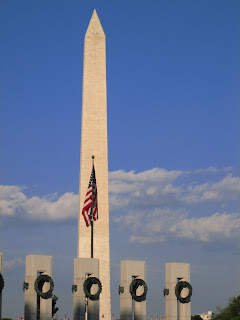A couple of headlines that caught my eye today (from the Daily Star):
"Israelis call for attacker's home to be razed"
Since when has being so bloodthirsty and vengeful become so normal? Can't really imagine what satisfaction someone would gain, or what a country would accomplish, by destroying another home or publicly hanging a President who doesn't have much power left anyways. I find a huge contradiction in Lebanon. While there is a general anti-Israel and anti-Syrian (it's worse to be Syrian than it is to be Israeli) attitude in the country because of all the oppression Lebanon has endured at the hands of the two powers, the state and the people here are quick to oppress others. Although the massacres of Palestinians in Lebanon happened during the civil war, now Palestinian refugees are completely ignored. They cannot get jobs, they have no rights, they are not talked about, essentially they do not exist. Meanwhile, Africans and Philippine men and women take up jobs here as janitors, maids, nannies, and other menial jobs. They get low pay, and are not well respected, and in some cases they have their passports taken away, are beaten, and worse... I also hear that during the 2006 war, while many Lebanese families fled into the mountains, they locked their maids inside the apartments. This is not new, but hearing about a people who oppress others complain about being victims of force is almost laughable.
I'm not quite sure what "peace" gains either with headlines like these:
"Israeli Military starts to exhume bodies of Lebanese fighters"
When I was young, I was told there were some things I could not talk about. When I lived in Coalinga, I knew there were taboo subjects that should not be discussed at school. This is what had excited me about journalism, and probably what I like about writing: the prospect of finally saying anything you want. I know there are restrictions in many countries when it comes to journalism, like there are in the U.S. as well. But this summer I have been disappointed in: Al J's refusal to talk about homosexuality, something that can't and should not be ignored for long; Iran's new attempt to try to pass a law that would give death penalty to bloggers if they are seen as a threat; Lebanon's refusal to talk to any Israeli citizen because they are in a state of war. These are not surprising, obviously, but they do mean that alot of problems that these countries and the region wants to overcome will not go away anytime soon. Being here has confirmed that there is a big gap between politics and people, and what makes the news doesn't necessarily reflect what's happening on the ground. Which is why I find the fact that Lebanese newspapers will not talk to any Israeli citizen to get better perceptions of their sides of the story a bit absurd. At this rate, the two countries will always be in a state of war. This makes me a bit disheartened about the idealism I have put in journalism. But it has also encouraged me to start writing more (blogs, poetry, fiction, articles, etc.)
In the meantime, however, if you want to see what not talking gains, read the headlines.










